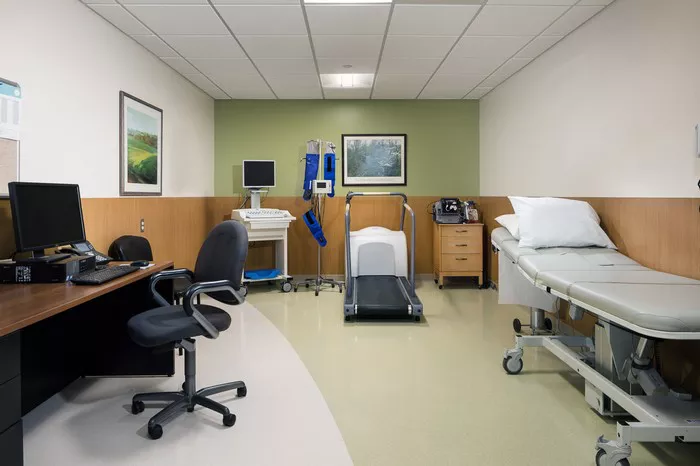Medical anxiety, often referred to as health anxiety or hypochondriasis, is a condition characterized by excessive worry about having a serious illness. This anxiety can lead to significant distress and impairment in daily functioning. Understanding how to manage and alleviate medical anxiety is crucial for improving one’s quality of life. This comprehensive article will explore the causes, symptoms, and effective strategies to stop medical anxiety.
1. Understanding Medical Anxiety
Medical anxiety involves an overwhelming fear or preoccupation with health concerns, often leading individuals to misinterpret normal bodily sensations as signs of severe illness. This condition can manifest in various ways, from frequent doctor visits to excessive research about diseases.
The Psychology Behind Medical Anxiety
Several psychological factors contribute to the development of medical anxiety:
- Cognitive Distortions: Individuals with medical anxiety often engage in catastrophic thinking, where they assume the worst possible outcomes from minor symptoms.
- Past Experiences: Previous health issues or traumatic medical events can trigger heightened sensitivity to bodily sensations.
- Personality Traits: Certain personality traits, such as perfectionism or a tendency toward neuroticism, may predispose individuals to develop health anxiety.
2. Symptoms of Medical Anxiety
Recognizing the symptoms of medical anxiety is essential for effective management. Common symptoms include:
- Excessive worry about health
- Frequent checking of the body for signs of illness
- Seeking reassurance from healthcare professionals
- Avoidance of situations that could trigger anxiety (e.g., hospitals)
- Physical symptoms such as headaches, stomachaches, or fatigue due to stress
These symptoms can vary in intensity and duration, often correlating with stress levels.
3. Causes of Medical Anxiety
Understanding the underlying causes of medical anxiety can help individuals address their concerns more effectively:
Psychological Factors
- Anxiety Disorders: Individuals with generalized anxiety disorder (GAD) or obsessive-compulsive disorder (OCD) may be more prone to developing health-related anxieties.
- Trauma: Past traumatic experiences related to health (e.g., a severe illness or loss) can lead to heightened vigilance regarding personal health.
Environmental Factors
- Media Influence: Exposure to sensationalized health news or social media discussions about illnesses can amplify fears and anxieties about personal health.
- Family Dynamics: Growing up in an environment where health concerns were overly emphasized can lead to learned behaviors related to medical anxiety.
4. Strategies to Stop Medical Anxiety
Managing medical anxiety requires a comprehensive approach that includes lifestyle changes, therapeutic techniques, and potential medical interventions.
Lifestyle Modifications
Making changes in daily habits can significantly reduce symptoms:
- Balanced Diet: Consuming a diet rich in whole foods, fruits, vegetables, and lean proteins can improve overall well-being and reduce stress levels.
- Regular Exercise: Engaging in physical activity releases endorphins, which can help alleviate anxiety and improve mood.
- Adequate Sleep: Prioritizing sleep hygiene by maintaining a consistent sleep schedule and creating a restful environment can reduce overall anxiety levels.
Stress Management Techniques
Implementing stress-reducing techniques can help calm both the mind and body:
- Deep Breathing Exercises: Practicing deep breathing activates the parasympathetic nervous system, promoting relaxation.
- Mindfulness Meditation: Mindfulness practices help individuals focus on the present moment without judgment, reducing anxious thoughts about health.
- Progressive Muscle Relaxation: This technique involves tensing and then relaxing different muscle groups to relieve physical tension associated with stress.
- Yoga and Tai Chi: These practices combine movement with breath control and meditation, promoting relaxation and reducing anxiety levels.
Cognitive Behavioral Therapy (CBT)
CBT is an effective therapeutic approach for managing medical anxiety:
- It focuses on identifying negative thought patterns that contribute to anxiety.
- CBT teaches coping strategies that help individuals manage their reactions to stressors effectively.
Exposure Therapy
Exposure therapy involves gradually facing fears related to health concerns in a controlled environment. This technique helps desensitize individuals to their fears over time, reducing overall anxiety levels associated with medical situations.
5. When To Seek Professional Help
If medical anxiety persists despite self-management efforts or if you experience severe symptoms such as:
- Significant impairment in daily functioning
- Persistent panic attacks
- Suicidal thoughts or behaviors
It is essential to consult a healthcare professional for further evaluation and treatment options.
6. Medical Treatments for Medical Anxiety
In some cases, medical intervention may be necessary:
Medications
- Antidepressants: Certain antidepressants are effective in treating both anxiety disorders and depressive symptoms.
- Anti-anxiety Medications: These may be prescribed for short-term relief of severe anxiety symptoms but should be used under medical supervision.
- Beta-blockers: These medications can help manage physical symptoms of anxiety (e.g., rapid heartbeat) during stressful situations.
Psychiatric Consultation
A referral to a psychiatrist may be necessary for further evaluation of underlying conditions like generalized anxiety disorder or obsessive-compulsive disorder that contribute to medical anxiety.
Conclusion
Medical anxiety is a prevalent condition that can significantly impact an individual’s quality of life if left unaddressed. By understanding its causes and implementing effective management strategies—such as lifestyle changes, stress reduction techniques, therapy, and potential medications—individuals can alleviate their symptoms and improve their overall well-being. If you find that your efforts are not yielding results or if your symptoms worsen, do not hesitate to seek professional help for a tailored treatment plan that addresses both your mental health and concerns regarding your physical well-being.
Related topics:
- How To Stop Stomach Anxiety?
- How To Tell If You Have Bipolar Depression?
- Why Is ADHD Considered A Mental Illness?


